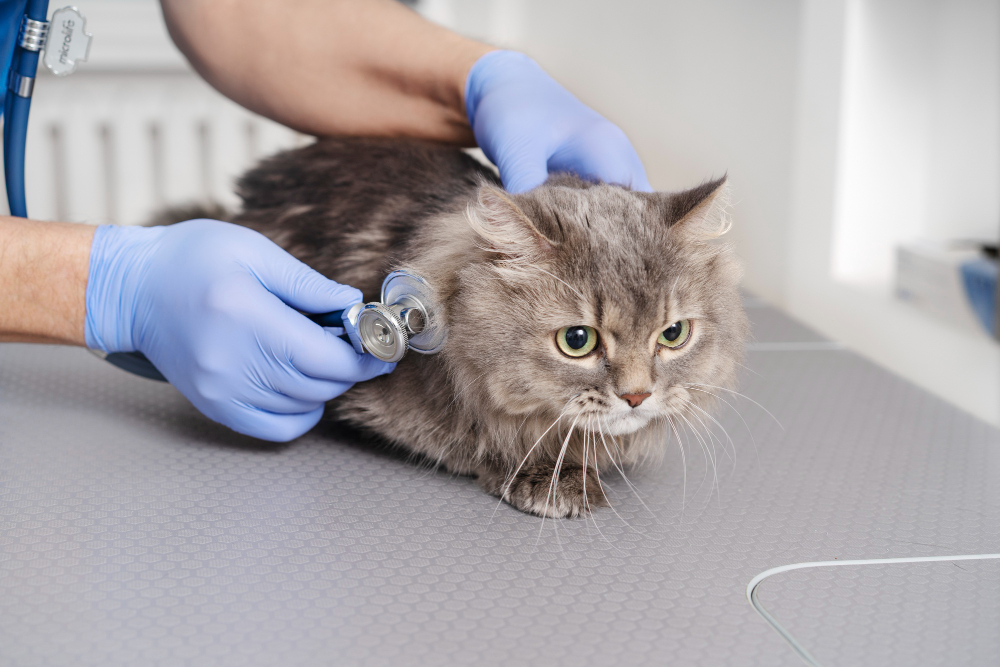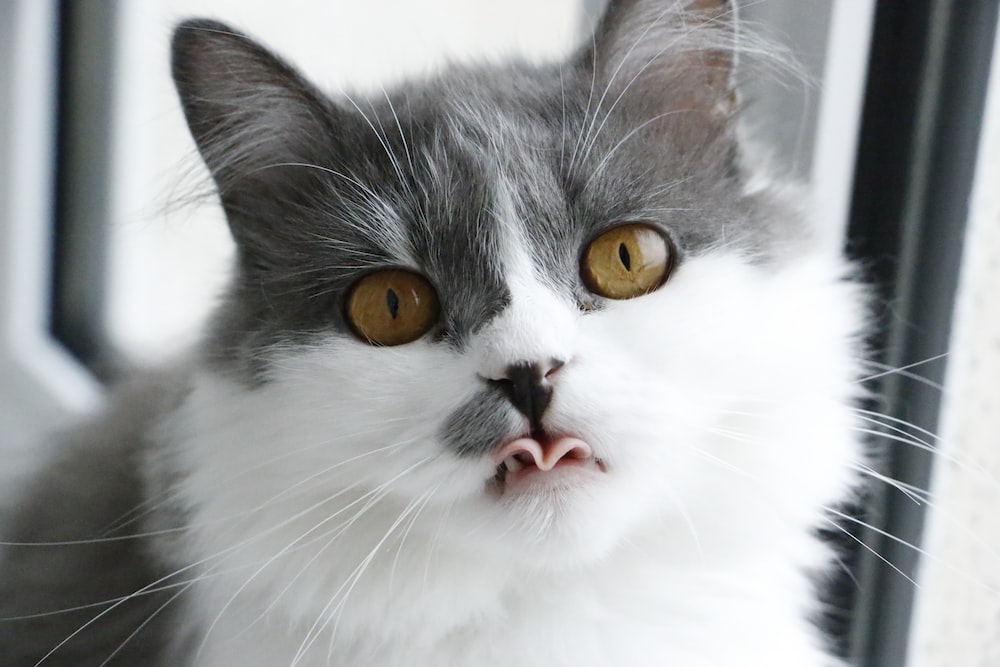Is your cat sneezing and you’re wondering why? Sneezing in cats can be quite common, but it’s important to understand the reasons behind it. In this article, we will explore the possible causes of cat sneezing and provide effective solutions to help your furry friend. Whether you’re looking for information, diagnosis, remedies, prevention, or reassurance, we’ve got you covered. Don’t ignore this common issue – read on to discover why your cat is sneezing and find the solutions you need to keep them happy and healthy.
Why Is Your Cat Sneezing? Common Causes and Solutions
Cats can sneeze for various reasons, and it is essential to understand the common causes and find effective solutions to alleviate their discomfort. One possible cause is allergies, which can be triggered by environmental factors such as pollen, dust, or certain foods. Another potential reason is a viral or bacterial infection, such as the feline herpes virus or calicivirus, which can lead to respiratory issues. Additionally, nasal irritants like smoke or strong scents can also make your cat sneeze. To address these issues, it is crucial to consult a veterinarian for proper diagnosis and treatment. They may recommend antihistamines, antibiotics, or other medications depending on the underlying cause. Providing a clean and dust-free environment, regular grooming, and a balanced diet can also help reduce sneezing in cats.
How To Fix Cat Sneezing: Effective Solutions
Cats sneezing can be a sign of various underlying issues but fret not, there are effective solutions to help alleviate your furry friend’s discomfort.
Identifying the Cause
First and foremost, it’s crucial to determine the root cause of your cat’s sneezing. Allergies, respiratory infections, or foreign objects stuck in their nose are common culprits.
Consulting a Veterinarian
If your cat’s sneezing persists or is accompanied by other concerning symptoms, it’s best to seek professional advice. A veterinarian can conduct a thorough examination and provide an accurate diagnosis.

Ensuring a Clean Environment
Maintaining a clean and dust-free environment can significantly reduce your cat’s sneezing. Regularly vacuuming, dusting, and changing air filters can help eliminate potential allergens.
Proper Hydration and Nutrition
Ensuring your cat stays hydrated and providing a balanced diet can strengthen their immune system, helping to combat sneezing caused by infections or allergies.
Using Nasal Sprays or Saline Solutions
In some cases, nasal sprays or saline solutions recommended by a veterinarian can help alleviate nasal congestion and reduce sneezing.
Remember, understanding the cause and implementing these solutions can help your cat find relief from sneezing and improve their overall well-being.
Common Reasons Why Your Cat Sneezes
Cats can sneeze for a variety of reasons, and it’s important to understand the common causes so you can address the issue effectively. One possible reason for your cat’s sneezing could be an upper respiratory infection, which is often caused by a virus or bacteria. Another common cause is allergies, which can be triggered by pollen, dust mites, or certain foods. Additionally, foreign objects such as grass or hairballs can irritate your cat’s nasal passages and lead to sneezing. If your cat is sneezing excessively and displaying other symptoms like nasal discharge or coughing, it’s crucial to consult a veterinarian for a proper diagnosis and treatment plan. In some cases, sneezing may also be a sign of more serious underlying health issues, such as dental problems or tumors. Therefore, it’s important to monitor your cat’s sneezing and seek professional advice when necessary.
What Should I Do About My Cat’s Sneezing?
When your beloved feline companion starts sneezing, it’s important to take action to ensure their health and well-being. Here are a few steps you can take to address this issue:
1. Observe your cat’s behavior
Pay attention to any other symptoms your cat may be experiencing, such as nasal discharge or coughing. This information will be helpful when discussing the issue with your veterinarian.
2. Keep your cat’s environment clean
Regularly clean your cat’s litter box, bedding, and toys to minimize the presence of allergens or irritants that may be causing the sneezing.
3. Consult with a veterinarian
If your cat’s sneezing persists or worsens, it’s best to seek professional advice. A veterinarian can perform a thorough examination and provide appropriate treatment options.
Remember, early intervention is key to preventing any potential complications. So, don’t delay in addressing your cat’s sneezing and ensure their continued health and happiness.
Why Is Your Cat Sneezing? Expert Advice and Solutions
Cats sneeze for various reasons, and it’s important to understand the underlying causes to address the issue effectively. One common cause of cat sneezing is allergies, which can be triggered by environmental factors such as pollen or dust. Another potential cause is a viral or bacterial infection, which may require veterinary intervention. Additionally, sneezing can be a symptom of a more serious underlying condition, such as feline herpes virus or nasal tumors.
Expert Advice: Identifying the Cause
To determine the cause of your cat’s sneezing, it’s crucial to observe any accompanying symptoms, such as nasal discharge or coughing. If your cat’s sneezing persists or worsens, consulting a veterinarian is recommended. They can perform a thorough examination and run tests if necessary to diagnose the underlying cause.
Effective Solutions: Providing Relief
Once the cause of your cat’s sneezing is identified, appropriate treatment can be administered. This may include antihistamines for allergies, antibiotics for infections, or antiviral medications for viral conditions. Additionally, keeping your cat’s environment clean and free of potential allergens can help alleviate symptoms. Regular vaccinations and routine check-ups are also essential to maintain your cat’s overall health and prevent future sneezing episodes.
How To Fix Cat Sneezing: Tips and Remedies
One of the most common issues that cat owners face is their furry friends sneezing. If you’re wondering how to fix cat sneezing, there are several tips and remedies that you can try.
Firstly, it’s important to identify the cause of your cat’s sneezing. Some common reasons include allergies, respiratory infections, or irritants in the environment. Once you have determined the cause, you can take appropriate steps to address it.
If your cat’s sneezing is due to allergies, you can try removing potential allergens from their surroundings, such as dust or pollen. Additionally, providing your cat with a clean and dust-free environment can help alleviate their symptoms.
In the case of respiratory infections, it’s best to consult a veterinarian who can prescribe medication or recommend treatments to help your cat recover. It’s important not to self-diagnose or administer any medications without professional guidance.
Overall, understanding the underlying cause of your cat’s sneezing and taking appropriate measures can help alleviate their discomfort and improve their overall health.
Common Reasons Why Your Cat Keeps Sneezing: What To Know
Cats are prone to sneezing, and it’s important for pet owners to understand the common reasons behind this behavior. One possible cause is allergies, which can be triggered by pollen, dust, or certain foods. Another potential reason is a respiratory infection, such as a cold or flu. In some cases, sneezing may be a sign of a more serious underlying condition, such as feline herpes or asthma. It’s crucial to monitor your cat’s sneezing patterns and observe any accompanying symptoms, such as nasal discharge or difficulty breathing.
If your cat keeps sneezing, it’s best to consult a veterinarian for a proper diagnosis. They can recommend appropriate treatments, such as antihistamines for allergies or antibiotics for infections. Additionally, keeping your cat’s environment clean and free of irritants can help alleviate sneezing episodes. Regular grooming and providing a well-balanced diet can also support your cat’s overall health and reduce the frequency of sneezing. Remember, understanding the reasons behind your cat’s sneezing is the first step towards finding effective solutions.










